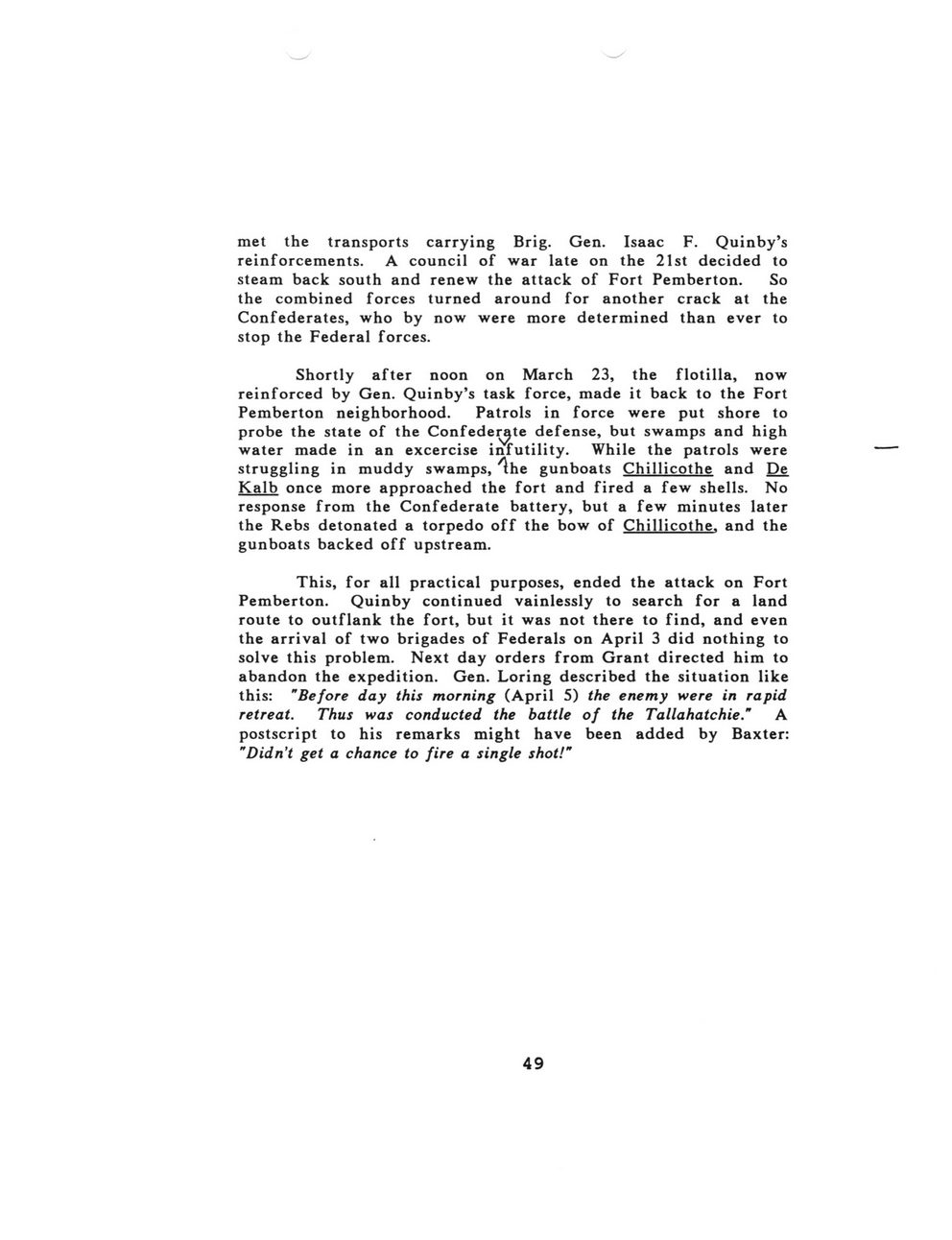This text was obtained via automated optical character recognition.
It has not been edited and may therefore contain several errors.
met the transports carrying Brig. Gen. Isaac F. Quinby?s reinforcements. A council of war late on the 21st decided to steam back south and renew the attack of Fort Pemberton. So the combined forces turned around for another crack at the Confederates, who by now were more determined than ever to stop the Federal forces. Shortly after noon on March 23, the flotilla, now reinforced by Gen. Quinby?s task force, made it back to the Fort Pemberton neighborhood. Patrols in force were put shore to probe the state of the Confederate defense, but swamps and high water made in an excercise infutility. While the patrols were struggling in muddy swamps, ^he gunboats Chillicothe and De Kalb once more approached the fort and fired a few shells. No response from the Confederate battery, but a few minutes later the Rebs detonated a torpedo off the bow of Chillicothe. and the gunboats backed off upstream. This, for all practical purposes, ended the attack on Fort Pemberton. Quinby continued vainlessly to search for a land route to outflank the fort, but it was not there to find, and even the arrival of two brigades of Federals on April 3 did nothing to solve this problem. Next day orders from Grant directed him to abandon the expedition. Gen. Loring described the situation like this: "Before day this morning (April 5) the enemy were in rapid retreat. Thus was conducted the battle of the Tallahatchie.'' A postscript to his remarks might have been added by Baxter: "Didn?t get a chance to fire a single shot!" 49

Baxter, Marion Francis Marion-Francis-Baxter-Bio.-049